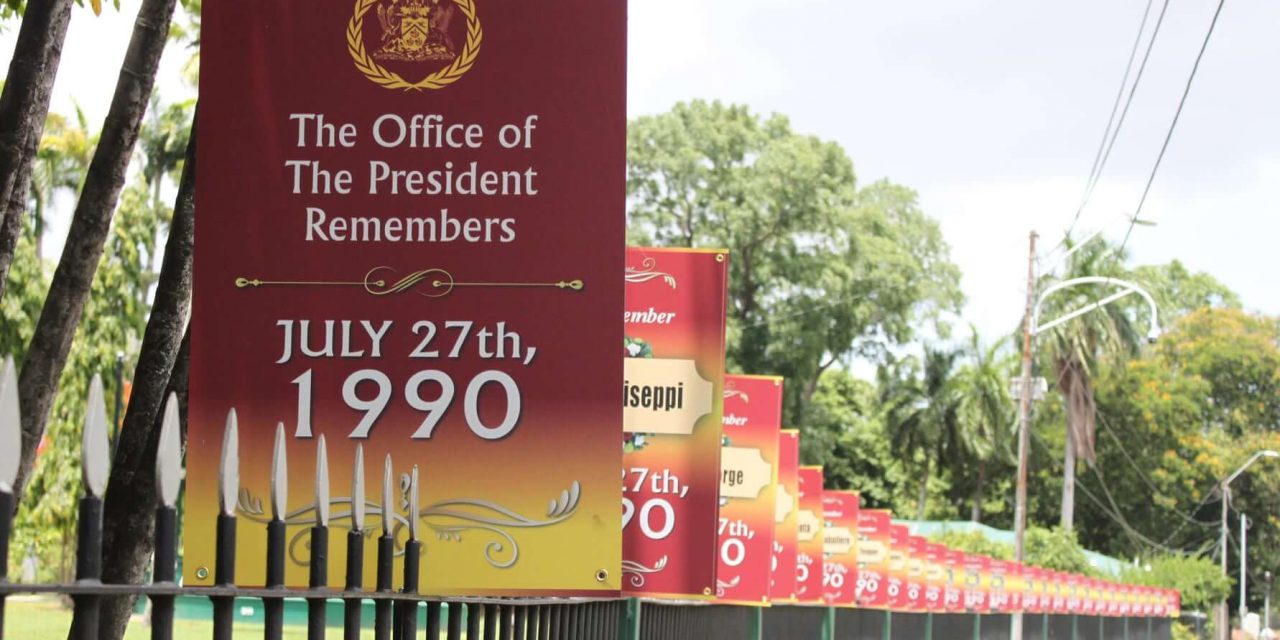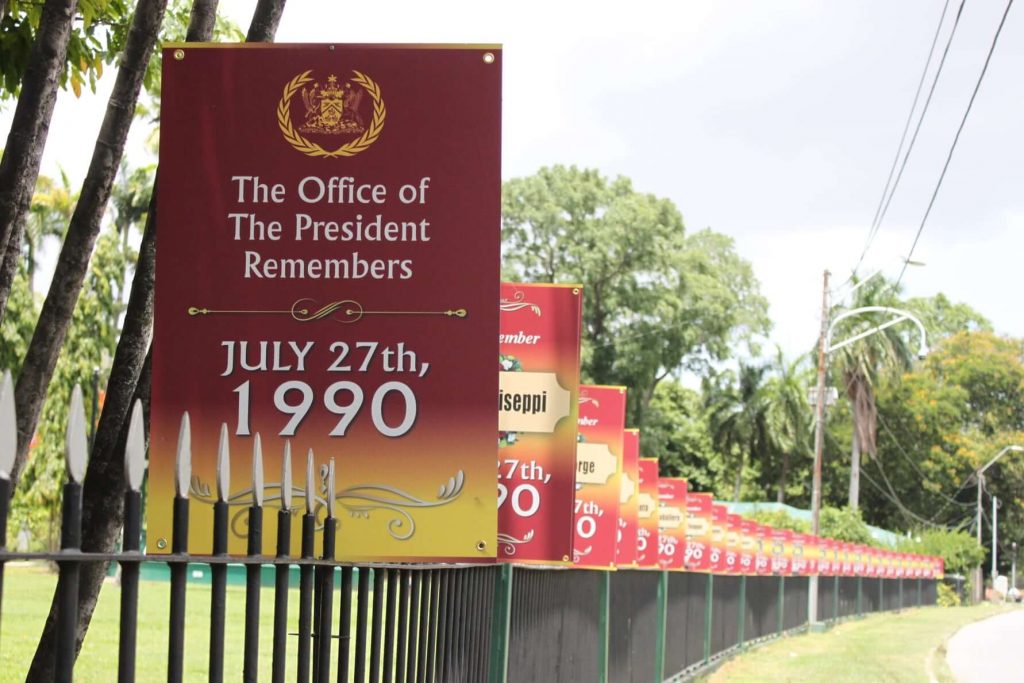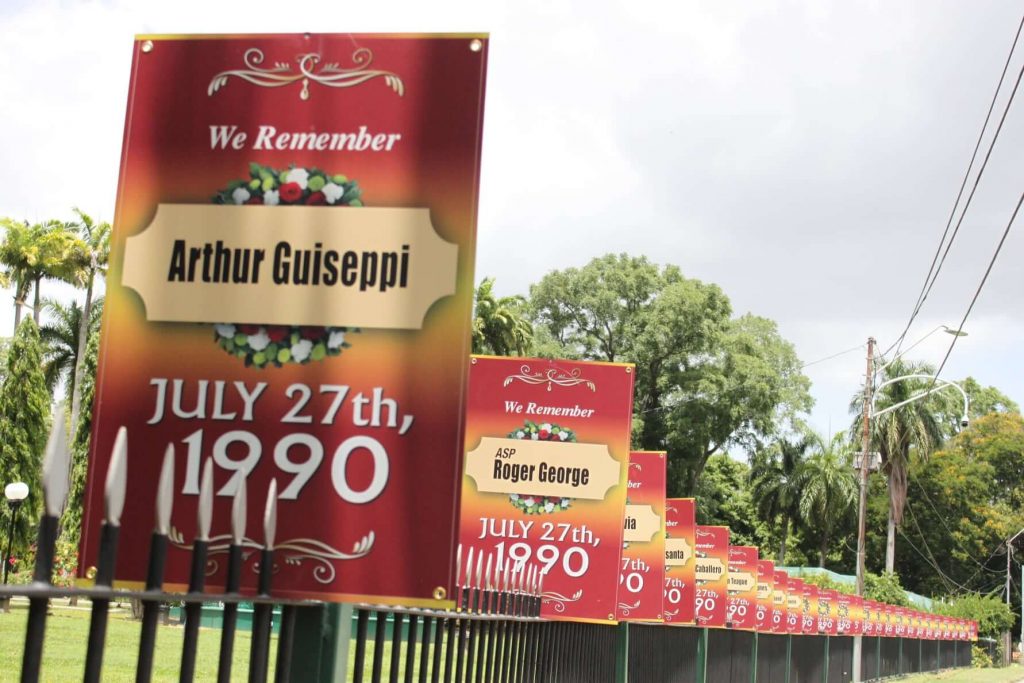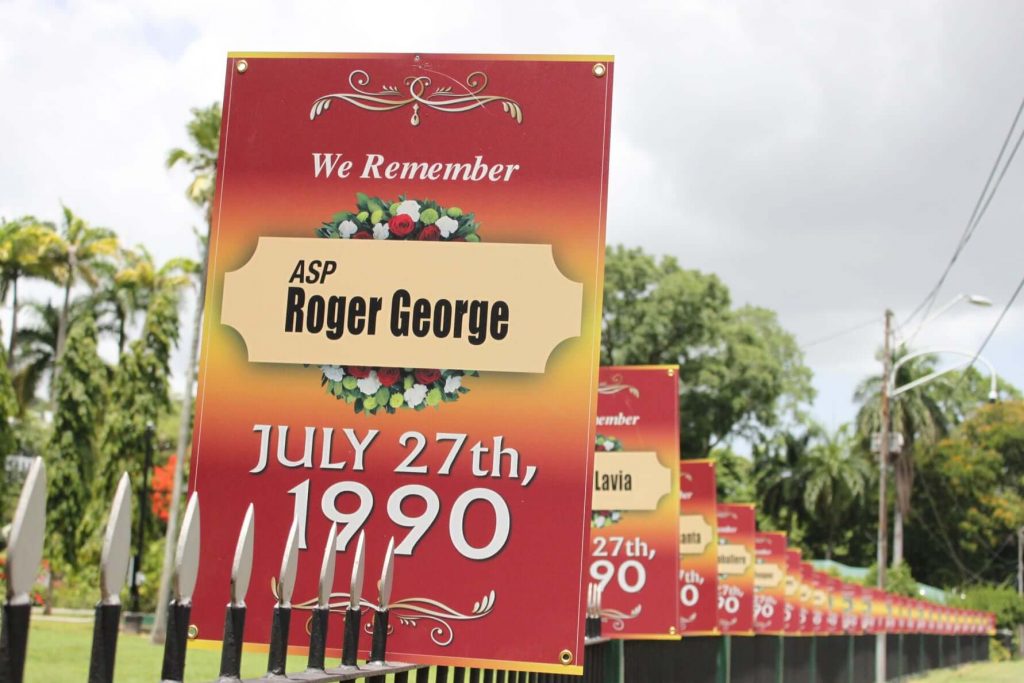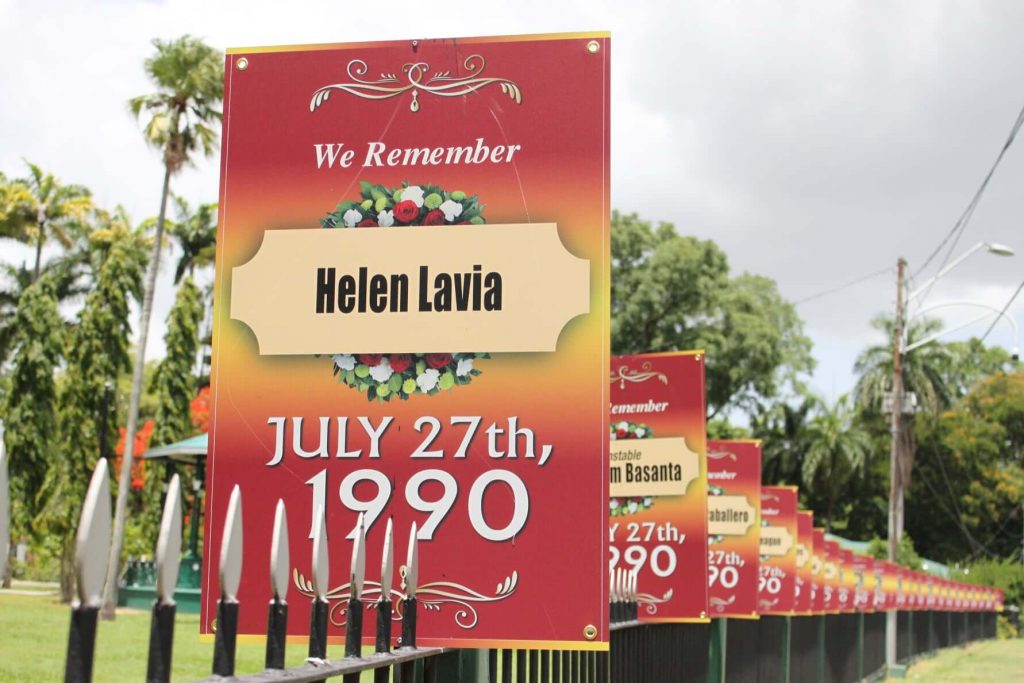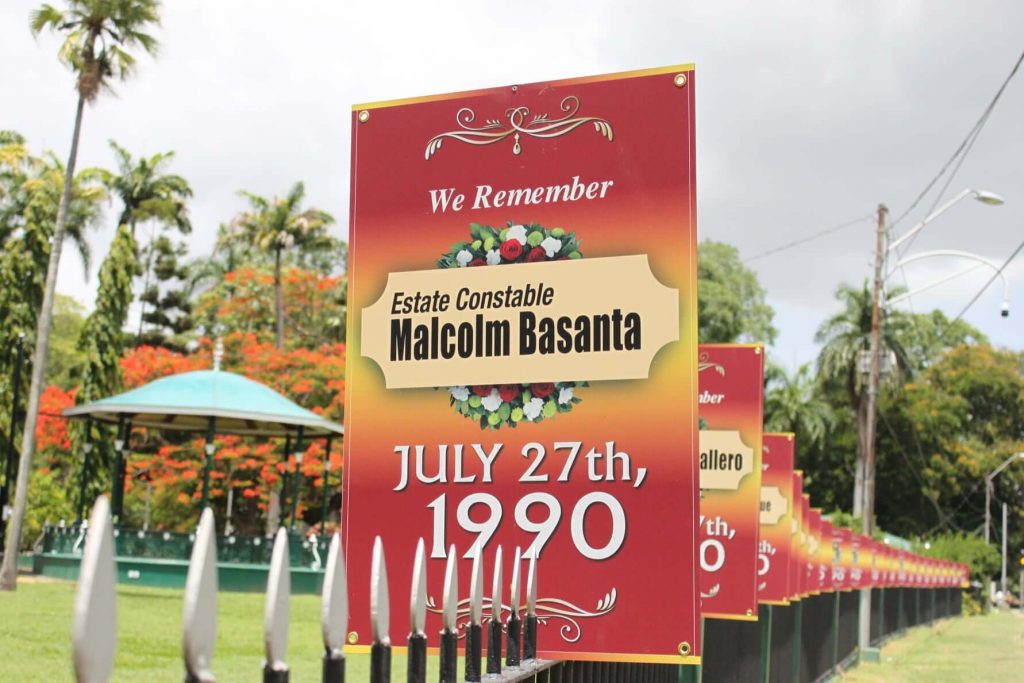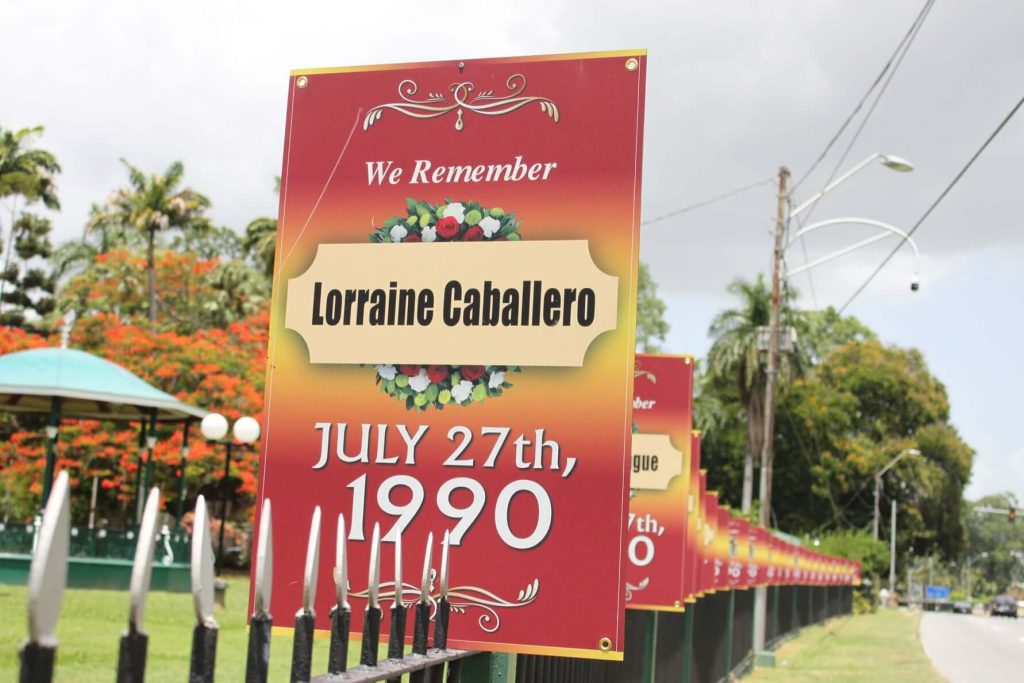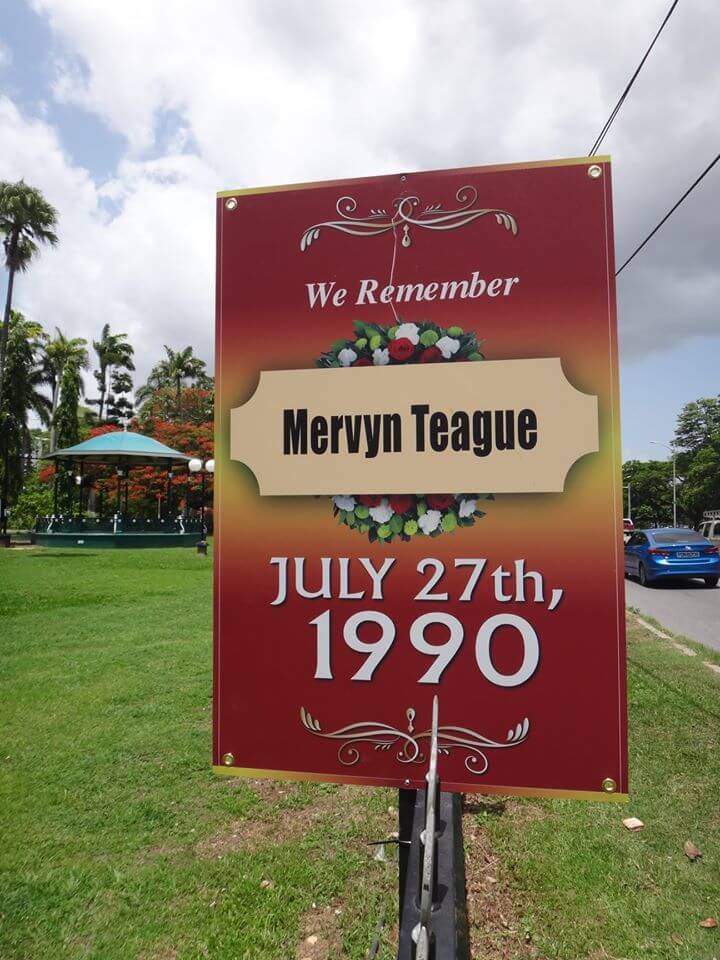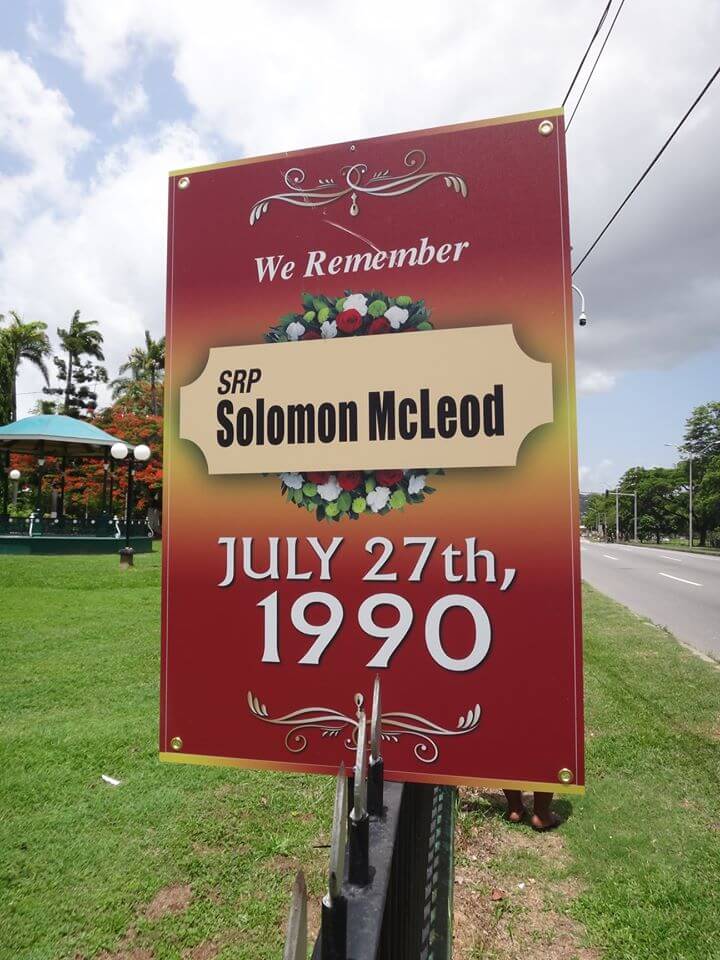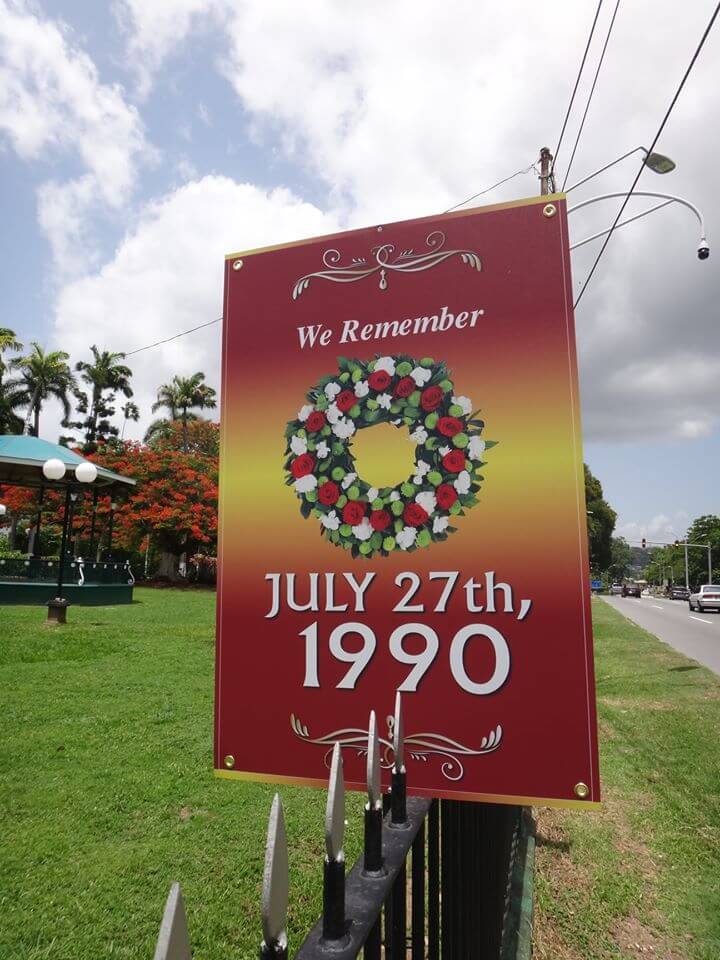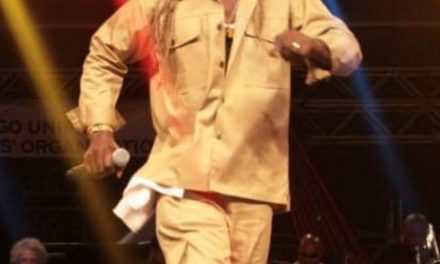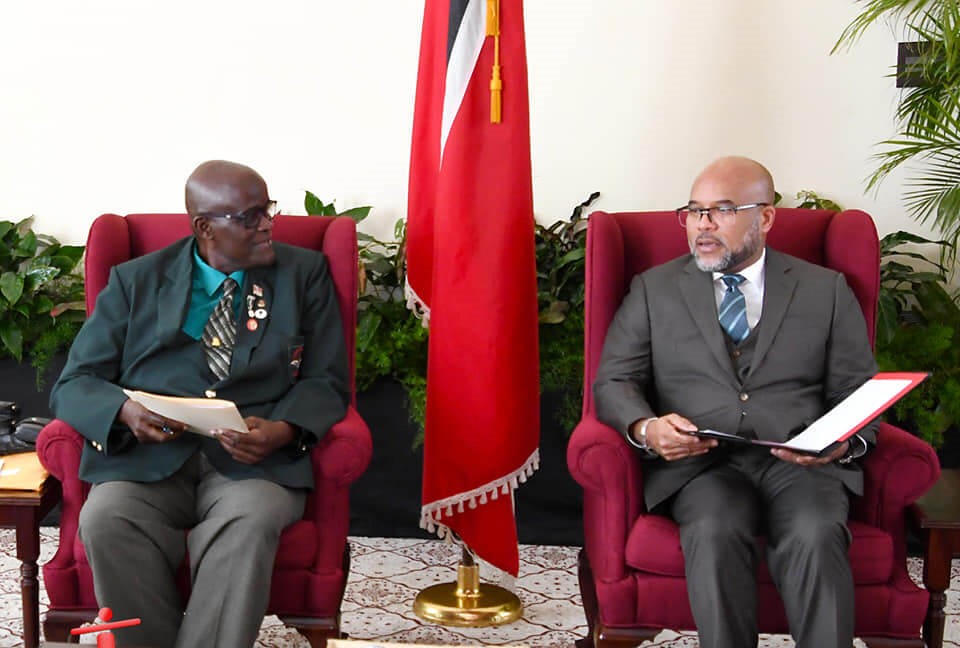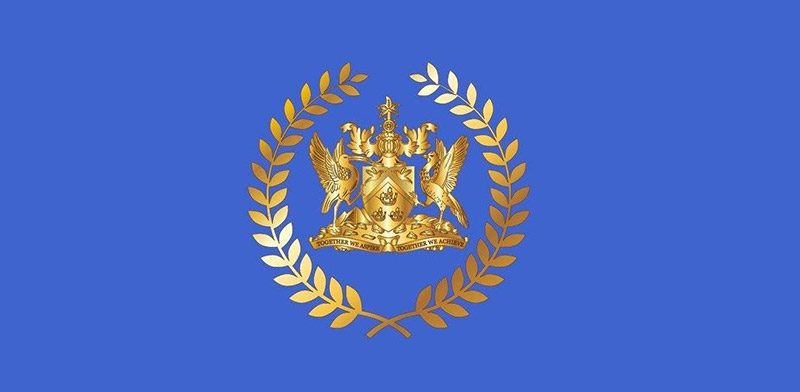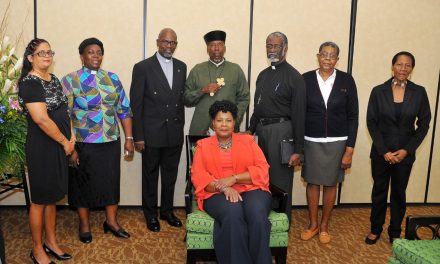Today, Trinidad and Tobago marks the 30th anniversary of the brazen insurrection which shook our young Republic to its core. On July 27, 1990, members of the Jamaat al-Muslimeen shot their way into the seat of our country’s democracy and waged a six-day campaign to overthrow the lawfully elected government. As a result of the assault, twenty-four people were killed, while countless others were robbed of their livelihoods, dignity, and peace of mind.
A Commission of Enquiry appointed in 2010 provided some chronology of the events but, without the testimony of the principal, did not offer the full understanding that the nation and, in particular, the victims rightly deserve. Three decades later, if sporadic public commentary is any indicator, more questions remain than answers and many in the national community continue to be haunted by the events of 1990, particularly those individuals who suffered physical, emotional and financial wounds.
The Commission’s 2014 Report highlighted in great detail the far-reaching and deleterious effects of the attempted coup and noted that “true healing and closure cannot be achieved in the absence of manifest remorse and contrition on the part of the Jamaat al-Muslimeen”.
In a recent affidavit sworn by Yasin Abu Bakr and incidentally connected to the very Commission of Enquiry, he averred “For all the pain I caused the nation I am sorry. Now it is time for closure.” Some thought that his words amounted to an apology and were a welcome, though belated step towards reconciliation. Abu Bakr later strongly denied that he had ever apologized to the nation for 1990. It is an affront to the victims and the country as a whole that in his affidavit, Abu Bakr attempted to determine the ‘when’ for closure, especially having abjured any remorse or regret for the attempted coup d’état and the consequent events.
Given that an unequivocal apology may never be obtained, we citizens must be the drivers of effecting our own reconciliation. It is heartening to see our religious leaders call for a day of prayer to commemorate this dark chapter of our nation’s history and to show gratitude for the democracy we enjoy today. Our prayers must however be accompanied by deliberate steps to entrench respect and value for democracy, eternal vigilance and the empowering of our security forces to withstand any attempt at a repeat.
The Commission’s Report included a recommendation for the recognition of July 27 as a day of national significance. It is disappointing to note that there is still no official commemoration of the attempted coup d’état. I suspect that it is this very lack of attention that has us in the shameful position of not being able to name all 24 of our citizens acknowledged to have died as a result of the insurrection.
It is our duty to honour and keep alive the memories of those known to have perished. We pay tribute to Mr. Leo des Vignes, Member of Parliament for Diego Martin Central; SRP Solomon McLeod; ASP Roger George; Estate Constable Malcolm Basanta; George Francis; Arthur Guiseppi; Helen Lavia; Lorraine Caballero and Mervyn Teague. Say their names aloud so that they are memorialised.
I urge citizens to eschew all forms of violence and renew their commitment to the democratic principles that we hold dear to ensure that the deaths of our fellow countrymen were not in vain. July 27 is an annual opportunity to be reminded of the value of our democratic freedoms and the need to ensure that such an egregious violation of our citizens’ rights and dignity can never again befall our nation.

